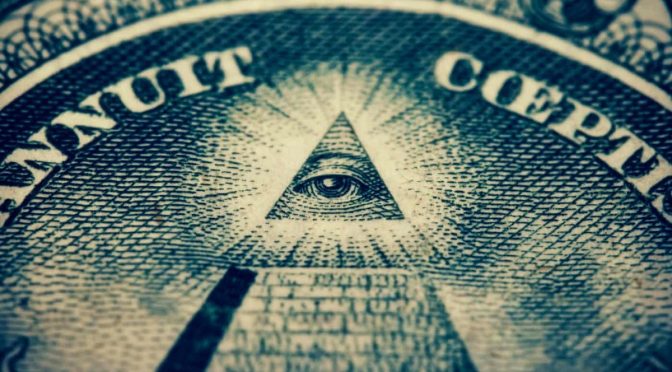Editorial note by Randall Hill, Court.rchp.com
Unless you believe people in power never commit crimes, you must understand that sometimes they conspire together. A conspiracy is simply a secret plan by two or more people to do something unlawful or harmful. It's basically criminals plotting or committing a crime, that's all a conspiracy is.
The media will often call a conspiracy a scandal, but regardless of the term used, it's still the same thing, Bridgegate was a conspiracy, referred to as a scandal, where lanes of a bridge were closed during rush hour as political punishment for not supporting New Jersey Governor Christopher Christie's reelection.
"None Dare Call It Conspiracy" was a book written in 1971 that asserted, modern political and economic systems in most developed nations are the result of a sweeping conspiracy by the power elite. A quote from chapter two of the book is relevant in the Trump era:
"Everyone knows that Adolph Hitler existed." … "Similarly, we know that a man named Vladimir Ilich Lenin also existed. Like Hitler, Lenin did not spring from a family of social lions." … "Is it not theoretically possible that a billionaire could be sitting, not in a garret, but in a penthouse, in Manhattan, London or Paris and dream the same dream as Lenin and Hitler?"
We have been miseducated and trained to reject anything called a "conspiracy" instinctively, without considering the merits of the information being presented. In most aspects of our lives, we recognize it is in our best interest to ask questions, be skeptical, and base our decisions and actions on as much information as possible.
Article
By Liberty Vittert, Washington University in St Louis
Have the internet and social media created a climate where Americans believe anything is possible? With headlines citing now as the age of conspiracy, is it really true?
In a word, no.
While it may be true that the internet has allowed people who believe in conspiracies to communicate more, it has not increased the number of Americans who believe in conspiracies, according to the data available.

Current beliefs
A “conspiracy theory” is a theory that explains an event or set of circumstances as the result of a secret plot, usually by powerful conspirators.
For example, take Pizzagate, the theory that Washington elite engaged in child sex trafficking at the basement of a D.C. pizzeria, which 9% of the American population believe to be true.
Over 29% of the American population believe there is a “Deep State” working against President Donald Trump. Nineteen percent believe that the government is using chemicals to control the population.
These conspiracy theories are not simply restricted to a fringe population. At least 50% of Americans believe in at least one conspiracy theory, ranging from the idea that the 9/11 attacks were fake to the belief that former President Barack Obama was not born in the U.S.
Historical data
There are no major comprehensive, longitudinal studies on Americans’ attitudes toward conspiracy theories, mostly because it was not rigorously measured until about 10 to 20 years ago.
However, researchers have done a considerate amount of work in recent years in an attempt to understand this apparent phenomenon.
Political scientists Joseph E. Uscinski and Joseph M. Parent reviewed over 120 years of letters to the editor, from 1890 to 2010, for both The New York Times and the Chicago Tribune.
In over 100,000 letters, this review showed absolutely no change in the amount of conspiracy theory belief over time. In fact, the percent of letters about conspiracy theories actually declined from the late 1800s to the 1960s and has remained steady since then.
While these researchers looked at data only up until 2010, current polling has not shown any uptick in conspiracy theory belief since then.
The end is near?
As Uscinski and Parent pointed out, this isn’t the first time Americans may have felt surrounded by conspiracies.
In 2004, the Boston Globe stated that we are in the “golden age of conspiracy theory.”
In 1994, the Washington Post declared it’s the “dawn of a new age of conspiracy theory.”
In 1964, The New York Times said conspiracy theories had “grown weed like in this country.”
The list could go on and on, but the gist is clear.
Whether it is the invention of the printing press, mass publishing, the telegraph, radio, cable, the internet or social media, researchers and the general public have historically proclaimed that this – or this, or this – new advance is the change-maker in political realities.
While the internet has certainly made discussion between conspiracy theorists easier, there is no evidence at this time that belief in these theories has increased.
Republished with permission under license from The Conversation.

